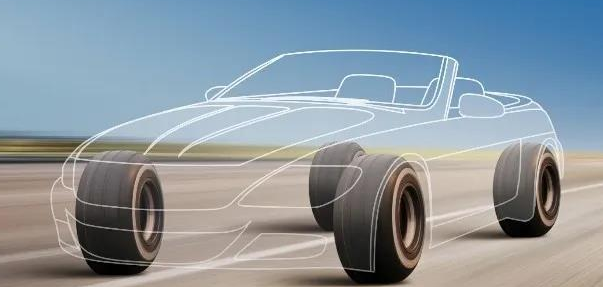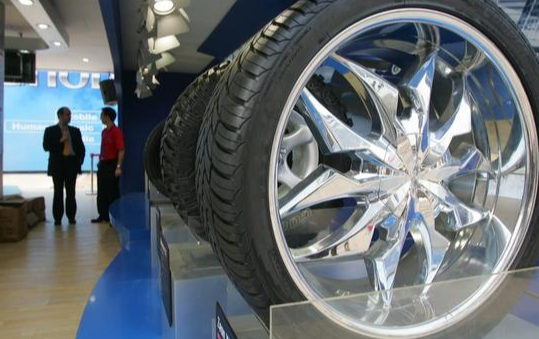Taking the wind of new energy, China's tire manufacturing opportunities
1.1. The industrial chain landing in China is expected to follow the path of consumer electronics
New energy vehicle production and sales continue to increase, the largest market in China. From 2014 to 2021, global new energy vehicle sales have grown rapidly from about 300,000 to about 6 million, and China's new energy vehicle sales have increased from about 40,000 to about 3 million, making it the main consumer of new energy vehicles. Under the epidemic, the sales of new energy vehicles have bucked the trend since 2020, and the production and sales of domestic new energy vehicles in the first quarter of 2022 have far exceeded 2021, reaching 1.216 million and 1.07 million, respectively, an increase of 150.72% and 144.41% year-on-year, with rapid growth.
The new energy vehicle industry is different from the traditional automobile industry, and new energy vehicles are more like consumer electronics products. The emergence of iPhone in 2007 introduced the concept of smart phones to the public, led the rapid development of the consumer electronics industry, and changed the mobile phone industry and the Internet economy. Different from the feature phones of the last era, Apple has only launched more than 10 models in the era of smart phones, but it has better met the needs of different consumers. In the past generations of iPhone upgrades, it is not difficult to find that Apple has invested a lot in core hardware and software such as touch screen, camera, chip and iOS operating system, and technological innovation has made Apple always maintain a strong market competitiveness.

Compared with Tesla, its Model series of new energy vehicles are also continuously upgraded in core components such as power batteries, drive motors, automotive chips, operating systems, etc., to meet the multi-level needs of consumers. In terms of power batteries, from 18650 and 21700 batteries to 4680 and lithium iron phosphate batteries, Tesla continues to upgrade battery power and driving range for Model series models; In terms of drive motors, Tesla is replacing AC asynchronous motors with more advanced permanent magnet synchronous motors, and upgrading the number of motors for high-end vehicles to provide strong power for Model series vehicles; In terms of chips and software, Tesla has self-developed FSD car chips and Autopilot autonomous driving program, and recently promoted the application of Dojo D1 chips and Bot robots, so as to make new energy vehicles more intelligent.
The development of iPhone series smart phones and Model series new energy vehicles has driven the progress of related industries. Taking Foxconn as an example, since 2007, its annual sales of 3C electronic products have risen from about 10 billion to about 22 billion, and by the end of 2020, the cumulative production and sales are close to 200 billion, which is one of the most important foundry enterprises in the Apple industry chain.
Similar foundry phenomena also appear in the new energy vehicle industry. In 2016, Jianghuai Automobile and NIO signed a strategic cooperation framework agreement to confirm the cooperative production of ES8; In 2018, the first ES8 was born in the Jianghuai Weilai factory, and the two companies confirmed the cooperation in the production of ES6; In 2021, NIO's 100,000th mass-produced car will roll off the production line at the Jianghuai NIO factory. In the future, the two companies plan to establish a joint venture company to continue to expand the existing production capacity.

In the development of the consumer electronics industry, Chinese manufacturers have become increasingly important in Apple's supply chain. 35 American companies, accounting for about 18%; 33 Japanese companies, accounting for about 17%; 14 South Korean companies, accounting for about 7%; Other countries have 20.
There are similarities between the new energy automobile industry and the consumer electronics industry. Tesla, as a representative of the new energy automobile industry, has adopted a localized supply chain strategy in supply chain management and is promoting the landing of the new energy automobile industry chain in China. Tesla's 2020 impact report shows that the origin of auto parts in Shanghai factories has achieved 86% localization, and China, as the most intensive place in the global auto industry, has a rapid localization process. On August 17, 2021, Yuan Guohua, deputy secretary of the Party Working Committee of Lingang New Area of Shanghai Pilot Free Trade Zone, said: "By the 2021s, the localization rate of Tesla Shanghai Gigafactory will reach about 90%." Tesla's localization process will further deepen.
In addition to Tesla, traditional car companies are also planning new energy models in China, and relevant domestic enterprises will benefit. According to the latest data, by 2026, Volkswagen, Daimler, Mercedes-Benz, Stellantis, Toyota, Honda, Nissan, Ford, GM, Hyundai and other traditional car companies have planned to lay out more than 50 EV and PHEV models in China, some of which have been listed such as Lavida pure electric and Golf.

1.2. Oems are under great pressure to reduce costs, and cost performance is king
The cost control and supply chain management of new energy vehicle enterprises are more stringent. Taking NIO as an example, its ES6 sports version of the original tire replaced the 2019 Mainland MaxContact MC6 with the 2020 Hankook Ventus S1 evo2, which significantly reduced the retail reference price of a single tire, contributing to the reduction of vehicle production costs. For Tesla, after the 2020 Model 3 standard life upgrade replaced the battery from a ternary lithium battery to a lithium iron phosphate battery, the production cost also dropped significantly, and the vehicle price was adjusted to 249,000 yuan, down about 8.1%.
In the context of rising global automotive raw material prices, the price of domestic Tesla is more stable, on the one hand, there is room for domestic production costs to fall, and on the other hand, it is difficult to raise prices under the pressure of cost reduction. From the Model 3 high-performance version in the United States and China's price point of view, the price of the domestic version of Model 3 is more stable, only increased this year, while the American version of Model 3 has experienced several price increases, the current price is about 35,000 yuan higher than the domestic version, since 2021, the price difference between the two places has expanded significantly. On the contrary, because the Model S is a pure import car, its price is affected by the production cost of the United States factory, and the Model S long-life version in China and the United States has increased several times since 2021, and the domestic price adjustment is even larger.
The profitability of traditional car companies is under pressure, and the pressure to reduce costs is huge. In recent years, traditional car companies such as SAIC and General Motors have experienced a downturn stage, while in comparison, new energy vehicle companies represented by Tesla will achieve a net profit of about 35.2 billion yuan in 2021, an increase of more than 6 times.

Tires, as the main parts of automobiles, are an important part of the cost reduction of automobile companies, and domestic tires are more cost-effective in comparison. Through the comparison of prices on the mainstream Tire e-commerce Tuhu and Simple Tire at home and abroad, it is found that the price of tires of the same specification is generally lower than that of overseas enterprises, and the average price is about 1/3 to 1/2 of that of major overseas enterprises.
From the perspective of production costs, domestic tire enterprises have low labor costs and more advantages. Michelin's official website shows that the proportion of labor costs in its cost structure has reached 32%, while raw material costs account for about 20%, and the proportion of labor costs is very high. In contrast, the product cost of the domestic representative enterprises Senkirin, Linglong tires and wheel tires is mainly raw materials, accounting for more than 65%, an average of about 77%, while the average labor cost is about 9.4%.
- ABB
- General Electric
- EMERSON
- Honeywell
- HIMA
- ALSTOM
- Rolls-Royce
- MOTOROLA
- Rockwell
- Siemens
- Woodward
- YOKOGAWA
- FOXBORO
- KOLLMORGEN
- MOOG
- KB
- YAMAHA
- BENDER
- TEKTRONIX
- Westinghouse
- AMAT
- AB
- XYCOM
- Yaskawa
- B&R
- Schneider
- Kongsberg
- NI
- WATLOW
- ProSoft
- SEW
- ADVANCED
- Reliance
- TRICONEX
- METSO
- MAN
- Advantest
- STUDER
- KONGSBERG
- DANAHER MOTION
- Bently
- Galil
- EATON
- MOLEX
- DEIF
- B&W
- ZYGO
- Aerotech
- DANFOSS
- Beijer
- Moxa
- Rexroth
- Johnson
- WAGO
- TOSHIBA
- BMCM
- SMC
- HITACHI
- HIRSCHMANN
- Application field
- XP POWER
- CTI
- TRICON
- STOBER
- Thinklogical
- Horner Automation
- Meggitt
- Fanuc
- Baldor
- SHINKAWA
- Other Brands




































































































































